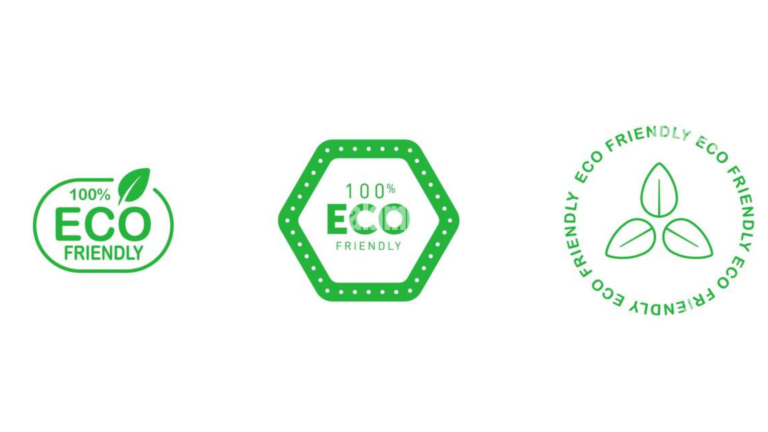As the founder and CEO of Ergode, I’ve always prioritized making a meaningful impact alongside driving profits. Today, one of the most critical issues businesses must address is climate change. The environmental footprint of eCommerce is substantial, and it’s our duty to reduce it. Whether you’re an online retail giant or a small boutique, adopting eco-friendly practices isn’t just good for the planet—it’s good for business. Let’s explore key strategies that can help minimize your online store’s carbon footprint and appeal to environmentally conscious consumers.

Think about the last package you received—was it filled with plastic or non-recyclable materials? Switching to eco-friendly packaging, like biodegradable air pillows or recycled paper, is a simple yet impactful way to reduce waste.
Let’s talk about one of our brands, Red Cup Living. Born from a desire to cut down on single-use plastic, Red Cup Living created reusable red party cups that bring communities together sustainably. In the same spirit, we’ve committed to using eco-friendly packaging across all our brands. By focusing on sustainable products and packaging, we reduce our environmental impact while appealing to eco-conscious consumers.

Shipping is a significant contributor to greenhouse gas emissions in the eCommerce world, but there are greener solutions. Partnering with companies that utilize electric vehicles or offer carbon-neutral shipping options is one step in the right direction. Additionally, you can encourage your customers to select slower shipping options, which often rely on ground rather than air transport—resulting in fewer emissions.
Incentivize eco-friendly choices with discounts or loyalty rewards for customers who opt for these slower, more sustainable delivery methods. At Ergode, we are exploring these avenues to ensure our shipping is as responsible as possible.

The infrastructure that powers your online store—web hosting—may not be an obvious source of carbon emissions, but it is. Servers require vast amounts of energy, much of which comes from non-renewable sources. Switching to a green web hosting provider that runs on renewable energy can drastically reduce your carbon footprint.
While this change might seem small, its impact is enormous. It’s also a great selling point for your brand, demonstrating a deep commitment to environmental responsibility. At Ergode, we’ve made this shift, and it’s a core part of our sustainability efforts.

Energy consumption doesn’t end with shipping and packaging. Your everyday operations—from running computers to lighting your offices—also play a role. Opt for energy-efficient lighting, consider remote work options to reduce office energy use, and invest in energy-efficient equipment.
Even simple habits, like switching off computers or lights when not in use, can contribute to energy savings. Over time, these minor adjustments can make a major difference in your company’s overall carbon emissions.
The products you offer are at the heart of your business, and where you source them from matters. Sourcing from ethical suppliers who prioritize renewable materials and responsible manufacturing is crucial for reducing your eCommerce store’s overall carbon footprint.
In our work at Ergode, we have sought suppliers who share our commitment to sustainability. Highlighting these ethical partnerships is a strong selling point for customers who care about the origins of the products they purchase.

Gone are the days when physical receipts were a necessity. Digital receipts and invoices not only eliminate paper waste but also enhance customer convenience by making records easier to track. Offering customers the option to receive digital receipts reinforces your brand’s eco-friendly practices while helping reduce unnecessary waste.

A simple yet effective way to support sustainability is by promoting eco-friendly products. Creating a dedicated section on your website for sustainable items and using visual cues like “eco-friendly” badges can nudge consumers towards more responsible purchasing choices.
Additionally, educating your customers on the benefits of eco-friendly products through blogs, social media, and email campaigns can increase their willingness to make greener purchases.

Finally, educating your customers about your sustainability initiatives can deepen loyalty and set your brand apart. Use your digital platforms—blogs, social media, and newsletters—to share actionable tips, from recycling packaging to making eco-friendly product choices. Engaging your customer base in this way not only raises awareness but also fosters a sense of community around shared values.
Running an eCommerce business today involves striking a balance between profitability and sustainability. By integrating these strategies into your operations, you can significantly reduce your carbon footprint while appealing to eco-conscious consumers. At Ergode, sustainability is a cornerstone of our long-term vision. We believe that by taking action now, we can not only meet today’s challenges but also create a better, greener future for generations to come.
Whether through sustainable packaging, green web hosting, or educating customers about eco-friendly choices, every small step counts. Let’s work together to build a future where businesses thrive while the planet prospers.
— Rupesh